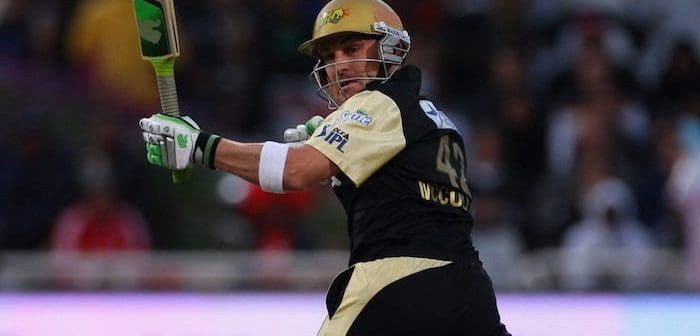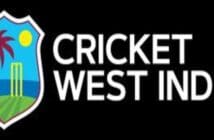IPL franchises cost their owners an average of $90 million. In the opening game back in 2008, Brendon McCullum’s stunning 158* showed they were going to get their money’s worth.
Royal Challengers Bangalore, captained by India legend Rahul Dravid, were the hosts for the first match against a Kolkata Knight Riders side owned by the King of Bollywood, Shah Rukh Khan.
Before the cricket could get started, there was a suitably over the top mix of acrobats, fireworks, dancing, bright lights and live music. Cheerleaders from the NFL’s Washington Redskins also paid a visit, to add to the pomp and ceremony.
Sourav Ganguly then finally strode out to the middle for Kolkata, after his opposite number had won the toss and elected to bowl first under the lights.
He was called through for a quick leg bye off the opening delivery and then the 55,000 strong crowd at the M. Chinnaswamy Stadium and the millions of fans tuned in at home were treated to the Brendon McCullum show.
It wasn’t a textbook innings, as the right-handed batsman miscued a flick which flew over third man for the first six to set the tone, scored another maximum with an audacious paddle over his left shoulder and played plenty of agricultural shots into the leg side.
But his massive century, at a strike-rate of over 200, was a fitting knock – the IPL had been launched to tear up the textbook and write a fresh manual for cricket tournaments.
Despite purists’ objections, it heralded a new era of lucrative, entertainment focused cricket competitions that are primarily designed for TV audiences.
Organisers wanted to follow European football’s lead by going after big broadcast deals and before the first ball was bowled, had already captured the imagination of the world’s largest sporting viewership – India’s cricket mad public.
Inventions from strategic captains’ time outs, that offer convenient gaps for ad breaks mid-innings, to a raft of sponsored individual awards, showed where the money was at for the modern cricketer.
The Indian franchise model has been copied by the Big Bash in Australia, the Caribbean Premier League, the Pakistan Super League, the Bangladesh Premier League, the South African Mzansi Super League and the Global T20 in Canada.
Even the ECB’s radical new 100 ball competition, which could be delayed until 2021 due to the coronavirus, is clearly inspired by, and designed to challenge, the IPL.
Some may have doubted the new competition’s potential for fireworks back on opening night in 2008 though, as McCullum failed to score off the first six deliveries he faced.
Then Brendon did what Brendon does. Ten balls later the New Zealander was on 35 and never looked back in an innings that contained 13 6s and 10 4s.
His eventual 158 not out, off just 73 balls, single-handedly won his side the game and set the record individual score for a T20 match (since surpassed by Chris Gayle’s stunning 175* in 2013).
South Africa all-rounder Jacques Kallis – 1-48 from his four overs – took the most brutal beating, but no bowler was spared on a relatively fast-paced pitch.
The supporting act of Ganguly (10 off 12), Ponting (20 off 20) and David Hussey (12 off 12) were required to do little other than get off strike, as the Knight Riders soared to 222-3.
In 2020 that kind of total seems gettable with a little luck, but it felt almost impossible 12 years ago. RCB went down with barely a whimper.
Dravid took an out of character heave and missed a straight one from Ishant Sharma, the most expensive bowler on show in the first IPL, to start the second over.
Virat Kohli, only 19-year-old at the time, then played-on trying to pull from outside off, two balls into the third.
With that Bangalore waved the white flag of surrender and were an almost laughable 26-4 after the powerplay.
Only the number nine Praveen Kumar made it to double figures (18 off 15), as they tamely limped to 82 all out in 15.1 overs, losing by 140 runs – then the fourth largest defeat in this format.
McCullum and Kolkata ensured cricket’s leap forward was irreversible with such a spectacular performance on this day in 2008, but they failed to even reach the playoffs as Shane Warne’s Rajasthan Royals eventually lifted the inaugural IPL trophy.
![Prost International [PINT]](https://prostinternational.com/wp-content/uploads/2021/08/PINTtFontLogoRoboto1536x78.jpg)



